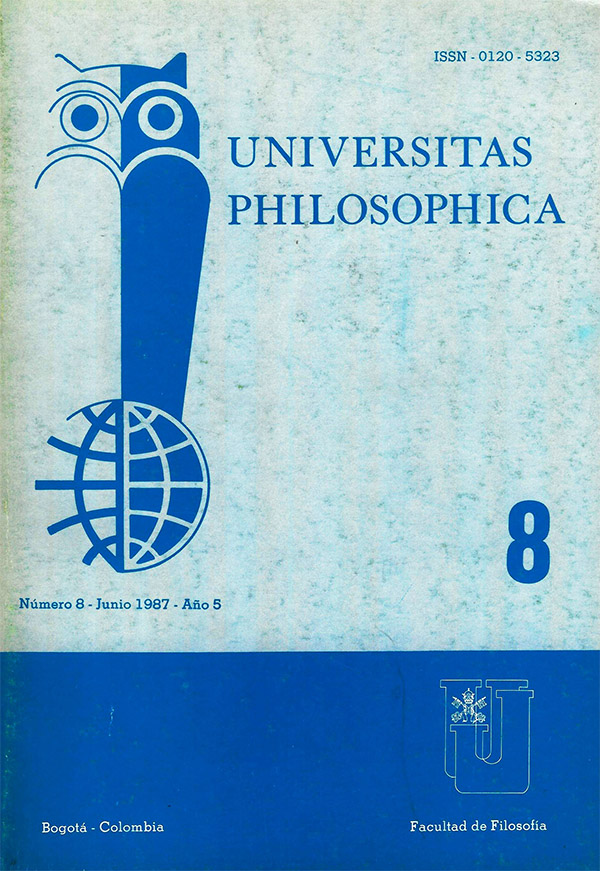Abstract
El presente texto trata de un examen de las principales tesis kantianas sobre la moralidad a la luz de la situación problemática que suscita en dicha Filosofía la cuestión de la "posibilidad de la libertad". La "posibilidad" (primera categoría de la modalidad) puede ser entendida, o bien como posibilidad lógica (no-contradicción), o bien como posibilidad real (concordancia de un conocimiento con condiciones de la determinación de la experiencia). Ante la dificultad que la filosofía práctica kantiana tiene de establecer una justificación de la posibilidad real de la libertad, el autorpropone como estrategia de interpretación el que se asuma la fundamentación racional de la moralidad dentro del ámbito de lo que
Kant, en la Disciplina de la razón pura, llama "defensa de un derecho".
Por esta vía se tiene acceso a un "concepto crítico de libertad': que puede servirnos de "puente" entre los mundos sensible y suprasensible, sobre la base de la facultad reflexionante de juzgar, que tematiza Kant en la Crítica del Juicio. Con esto se le abre a la libertad el terreno de su realizabilidad histórica en conformidad con los fines y pretensiones de unidad de la Razón.
This journal is registered under a Creative Commons Attribution 4.0 International Public License. Thus, this work may be reproduced, distributed, and publicly shared in digital format, as long as the names of the authors and Pontificia Universidad Javeriana are acknowledged. Others are allowed to quote, adapt, transform, auto-archive, republish, and create based on this material, for any purpose (even commercial ones), provided the authorship is duly acknowledged, a link to the original work is provided, and it is specified if changes have been made. Pontificia Universidad Javeriana does not hold the rights of published works and the authors are solely responsible for the contents of their works; they keep the moral, intellectual, privacy, and publicity rights.
Approving the intervention of the work (review, copy-editing, translation, layout) and the following outreach, are granted through an use license and not through an assignment of rights. This means the journal and Pontificia Universidad Javeriana cannot be held responsible for any ethical malpractice by the authors. As a consequence of the protection granted by the use license, the journal is not required to publish recantations or modify information already published, unless the errata stems from the editorial management process. Publishing contents in this journal does not generate royalties for contributors.


